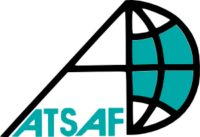ATSAF ist eine wissenschaftliche Gesellschaft der international ausgerichteten Agrar- und Ökosystemforschung in Deutschland.
ATSAF vereinigt Wissenschaftler*innen und Entwicklungsexpert*innen aus den Bereichen Agrarwissenschaften, Ökologie, Veterinärmedizin, Ernährung, Forstwirtschaft, Fischerei sowie weiterer, auch grundlagenorientierter Disziplinen mit dem Schwerpunkt
entwicklungsorientierte Forschung
für Tropen und Subtropen sowie Transformationsländer
ATSAF informiert, fördert multidisziplinäre Forschung, vernetzt Mitglieder mit Kooperationspartner*innen, verstärkt öffentliche Wahrnehmung, intensiviert Kommunikation, bezieht Position und stiftet Identität für alle an diesen Fragen Interessierten, besonders auch Studierende und Nachwuchswissenschaftler*innen.
ATSAF unterstützt aktiv jährlich den Tropentag, fördert Studierende mit Interesse für Wissenschaftsjournalismus, vergibt Kongressreisestipendien, initiiert Expert*innengespräche, und bildet Kompetenzteams.
ATSAF in eineinhalb Minuten – Die Arbeitsgemeinschaft für Tropische und Subtropische Agrarforschung stellt sich in ihrem Imagefilm vor.
